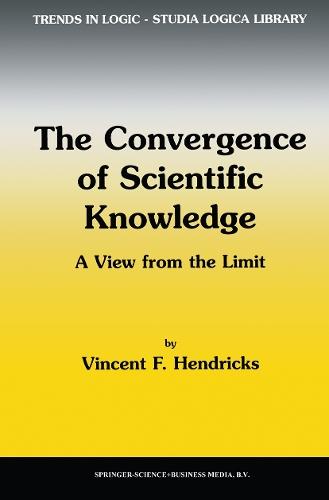Overview
The fundamental thesis of The Convergence of Scientific Knowledge: a view from the limit is that knowledge may be characterized by convergence to a correct hypothesis in the limit of empirical scientific inquiry. The primary aim is not to say whether convergence will or will not occur. It is rather to systematically investigate the proposal that such convergence, if it occurs, is descriptive of scientific knowledge from a logical point of view; in brief to provide an epistemology of limiting convergence for both scientific realists and anti-realists. To investigate this convergence proposal a new framework called 'modal operator theory' is introduced. Modal operator theory denotes the cocktail obtained by mixing epistemic, alethic, and tense logic in order to study the validity of limiting convergent knowledge. With profound philosophical motivation this book takes both professionals and students of philosophy, logic and computer science for a systematic tour of the knowledge and convergence universe.
Full Product Details
Author: Vincent F. Hendricks
Publisher: Springer
Imprint: Springer
Edition: Softcover reprint of hardcover 1st ed. 2001
Volume: 9
Dimensions:
Width: 15.50cm
, Height: 2.10cm
, Length: 23.50cm
Weight: 0.623kg
ISBN: 9789048156917
ISBN 10: 9048156912
Pages: 367
Publication Date: 15 December 2010
Audience:
Professional and scholarly
,
Professional & Vocational
Format: Paperback
Publisher's Status: Active
Availability: Out of stock

The supplier is temporarily out of stock of this item. It will be ordered for you on backorder and shipped when it becomes available.
Reviews
Referee's comment: 'This book will be a rewarding reading for everybody who is interested in logical aspects of scientific knowledge acquisition. The presentation of the issues discussed in the book is exemplary. ...I hardly could mention another book in which various philosophical viewpoints on the nature of scientific inquiry are discussed in such a consistent but at the same time instructive and accurate way. ...I am quite sure that Hendricks' approach to the problems he studies is of considerable interest for anybody who is interested in forming a good theoretical model of growth of science.'
Referee's comment: 'This book will be a rewarding reading for everybody who is interested in logical aspects of scientific knowledge acquisition. The presentation of the issues discussed in the book is exemplary. ...I hardly could mention another book in which various philosophical viewpoints on the nature of scientific inquiry are discussed in such a consistent but at the same time instructive and accurate way. ...I am quite sure that Hendricks' approach to the problems he studies is of considerable interest for anybody who is interested in forming a good theoretical model of growth of science.'




